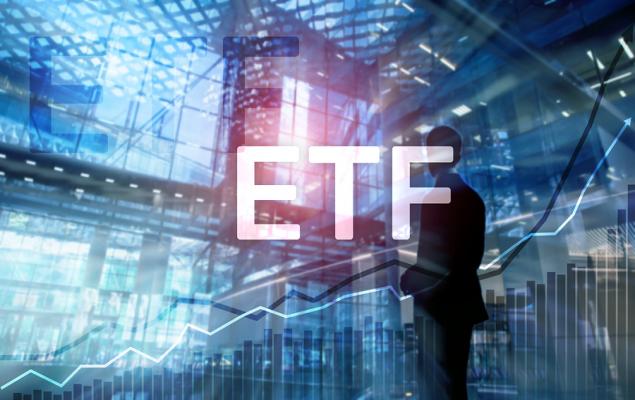Equal-Weight ETFs Win Over Market-Cap Peers In 2022

Image: Bigstock
The year 2022 has proven dismal for the U.S. stock market. This is especially true as all the major indices are in deep red from a year-to-date look thanks to Russia’s invasion of Ukraine, tightening monetary policy, and surging prices.
Though the decline was broad-based, equal-weighted ETFs are performing better than their market-cap counterparts. This is especially true as Invesco S&P 500 Equal Weight ETF (RSP - Free Report), Invesco S&P MidCap 400 Equal Weight ETF (EWMC - Free Report), and Invesco S&P SmallCap 600 Equal Weight ETF (EWSC - Free Report) have declined 8.8%, 9.2%, and 13.8%, respectively, so far this year. In comparison, market-cap-weight ETFs — SPDR S&P 500 ETF (SPY - Free Report), SPDR S&P MidCap 400 ETF (MDY - Free Report), and SPDR S&P 600 Small Cap Growth ETF (SLYG - Free Report) — have plunged 15%, 11%, and 18.4%, respectively.
The Fed’s aggressive monetary tightening policy in more than a decade has raised fears of a recession that took a toll on the stock market. Fed Chair Jerome Powell raised interest rates for the seventh time this year to rein in higher inflation, taking the benchmark rate to the range of 3.75% to 4.00% — the highest level since 2008.
The central bank signaled more rate increases next year in its latest meeting. It now projects at least 75 bps of rate hike, peaking at 5.1% by the end of 2023, 50 bps higher than the previously projected 4.6% in September. The rate will then be cut to 4.1% in 2024.
The increase in interest rates has made borrowing expensive, pushed up the cost of buying a new car or house, increased the cost of carrying credit card debt, and thus heightened the risk of a recession.
In particular, the tech sector and growth areas have been beaten down badly while cyclical stocks have performed well. As such, the S&P 500 remains in correction territory, down more than 18% this year and the tech-heavy Nasdaq Composite Index is way off 31%. The Dow Jones Industrial Average lost 8.6% this year.
Reasons for Outperformance
Equal-weight ETFs do a great job in managing single-security risk, thanks to their equal allocation in the entire spectrum of market-capitalization levels, regardless of size. As such, these limit the risk of a severe downfall in any particular security, providing a nice balance in the portfolio. Additionally, with quarterly rebalancing, equally-weight funds tend to cash in on the overvalued segments and reinvest in the underperforming ones, potentially allowing for outperformance if the trends reverse.
Overall, these funds not only go a long way in reducing overall risk but also provide higher diversification and higher returns over the long term when compared to the market-cap counterparts. Further, these offer more upside potential due to higher concentration in small and mid-cap stocks as compared to the market-cap-weighted funds. These have a minimal concentration risk but charge a hefty expense ratio compared to the fundamentally/capitalization-weighted counterpart.
Equal-Weight ETFs in Focus
Invesco S&P 500 Equal Weight ETF (RSP)
Invesco S&P 500 Equal Weight ETF tracks the S&P 500 Equal Weight Index, which equally weights the stocks in the S&P 500 Index. It charges 20 bps in annual fees and has amassed $33.8 billion in its asset base. Invesco S&P 500 Equal Weight ETF trades in an average daily volume of 3.3 million shares and has a Zacks Rank #3 (Hold).
Invesco S&P MidCap 400 Equal Weight ETF (EWMC)
Invesco S&P MidCap 400 Equal Weight ETF tracks the S&P MidCap 400Equal Weight Index, which equally weighs mid-cap securities on the S&P MidCap 400 Index. It has AUM of $159.4 million and charges 40 bps in annual fees. Invesco S&P MidCap 400 Equal Weight ETF trades in an average daily volume of 14,000 shares and has a Zacks Rank #3.
Invesco S&P SmallCap 600 Equal Weight ETF (EWSC)
With AUM of $50.6 million, Invesco S&P SmallCap 600 Equal Weight ETF follows the S&P SmallCap 600 Equal Weight Index, which equally weights small-cap securities on the S&P SmallCap 600 Index. It charges 40 bps in annual fees and trades in an average daily volume of 3,000 shares. Invesco S&P SmallCap 600 Equal Weight ETF has a Zacks Rank #3.
Bottom Line
These equal-weight ETFs are relatively less popular, thereby leading to lower average daily volumes and a wide bid/ask spread compared to market-cap cousins. This increases the total cost of trading beyond the expense ratio.
Though these ETFs have a higher expense ratio and low trading volume, they do not seem to be big problems as the products avoid company-specific risk and enjoy diversification benefits.
More By This Author:
ETFs Set To Soar On Fed 50 Bps Rate Hike, Hawkish Tone
ETFs To Benefit As Inflation Drops To One-Year Low
5 Hot ETFs Of Last Week
Disclosure: Zacks.com contains statements and statistics that have been obtained from sources believed to be reliable but are not guaranteed as to accuracy or completeness. References to any ...
more


